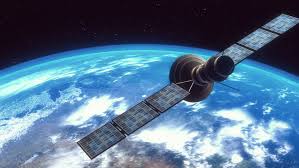Tourism, communications and defense are the new frontiers of space technology
Article by Tommaso Magrini
Space tourism and satellite technology are the future of Southeast Asia. Indeed, Thailand and Vietnam have embarked on a new "space race" that will propel the region to the center of the industry's development dynamics.
Thailand's Geo-Informatics and Space Technology Development Agency is preparing to put an industrial satellite, developed with support from the United Kingdom, into orbit in August. Within the next five years, moreover, the Southeast Asian country is intent on launching two or three more entirely home-made satellites.
These projects are as ambitious as they are important for Thailand's technological development, since the use of domestically developed satellites would give the country greater freedom in collecting and managing scientific data, which in Bangkok's case would be used to channel the agricultural sector toward a more technological and functional approach.
In addition, the country is considering building its own launch site. If budget and technological development allow, the facility could be built in less than a decade. Meanwhile, the government's prediction is that the space economy is set to grow by about $9 billion by 2030, becoming one of the country's top industries.
Thailand is also considering the use of space technology for defense purposes. It is also considering banning production sites for foreign military satellites and related equipment in the country.
But Thailand is not the only Southeast Asian nation with space ambitions. Hanoi is also moving in the same direction, having approved a plan to build a tourist spaceport by 2026. A 30 trillion dong project, according to local media, roughly $1.3 billion. The facility will be built on the island of Phu Quoc, already a popular tourist destination, and the first launch is scheduled for 2030.
Thailand and Vietnam are thus competing with the two space giants-China and the United States. But they are by no means starting at a disadvantage. In fact, the Southeast Asian countries have a not inconsiderable geographical advantage: their location near the equator allows them to use less energy for a single launch, consequently lowering costs.
The Philippines, too, did not miss the golden opportunity and signed an agreement with SpaceX, Elon Musk's company, to provide Starlink internet services. The company, in fact, hopes to improve communications and data transit in the mountainous and more remote areas of the archipelago, especially to facilitate rescue operations when needed. The increase in extreme weather conditions has indeed increased interest in the satellite business, Southeast Asia being one of the areas most affected by climate change, with floods and prolonged periods of drought occurring on a large scale. In this sense, satellite monitoring systems could help mitigate the consequences of such phenomena.






